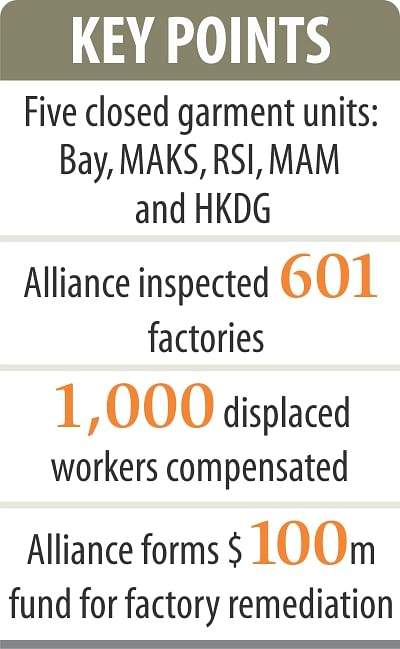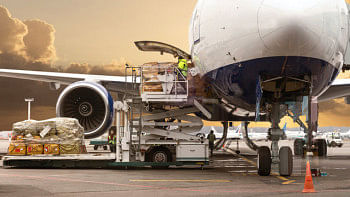Garment factory closures displace 3,500 workers

About 3,500 workers were displaced after the Alliance for Bangladesh Worker Safety, the platform of North American retailers, announced closure of five factories following inspections, the BGMEA said.
Engineers hired by the Alliance for Bangladesh Worker Safety found the factories -- Bay, MAKS, RSI, MAM and HKDG -- with unsafe electrical wiring, overloading of goods on floors and insufficient exit capacity and no sprinklers.
Shahidullah Azim, vice-president of the Bangladesh Garment Manufacturers and Exporters Association, said some displaced workers have already been accommodated in different factories.
By December, new factories will come by and the remaining displaced workers will get more employment opportunities, he added.
Mesbah Rabin, managing director of Alliance, however, said the number of displaced workers was 1,000 and that they have been compensated from the $5 million worker support fund established by the Alliance member brands.
The Alliance will pay 50 percent of the worker salaries for up to four months and the factory owners the remaining 50 percent.
“Ensuring that no garment worker has to put herself at risk to earn a living is our top priority, but we believe protecting and supporting workers must go hand in hand,” said Ellen Tauscher, Alliance's independent chair and former US Congresswoman.
“We are committed to ensuring as factory safety improvements are made, workers are not expected to pay the price,” she added.
The Alliance concluded their inspection rounds on Thursday after evaluating 601 factories in Dhaka and Chittagong.
The fact that less than 2 percent of the factories were found unsafe shows that the country's factories by and large are not as vulnerable as previously thought, Azim said.
“But we will not take any risks -- we don't want a repeat of the Rana Plaza incident. We are showing zero-tolerance to safety problems,” he said, while citing the closure of three vulnerable factories owned by BGMEA directors as an example.
The Accord on Fire and Building Safety in Bangladesh, a platform of 180 retailers and brands mainly from Europe, is inspecting 1,600 factories, while a group of engineers led by Bangladesh University of Engineering and Technology is inspecting 2,000.
Meanwhile, some small and medium factories have already started receiving interest-free loans from the $100 million fund formed by the 26 North American signatories to remediate their production units, according to Rabin.
Moreover, if any garment factory wants to receive loans from banks, the Alliance will help manage low-cost loans for them.
He said the bigger factories are not receiving the loans from the fund as they have the capacity to remediate their units.

 For all latest news, follow The Daily Star's Google News channel.
For all latest news, follow The Daily Star's Google News channel. 



Comments